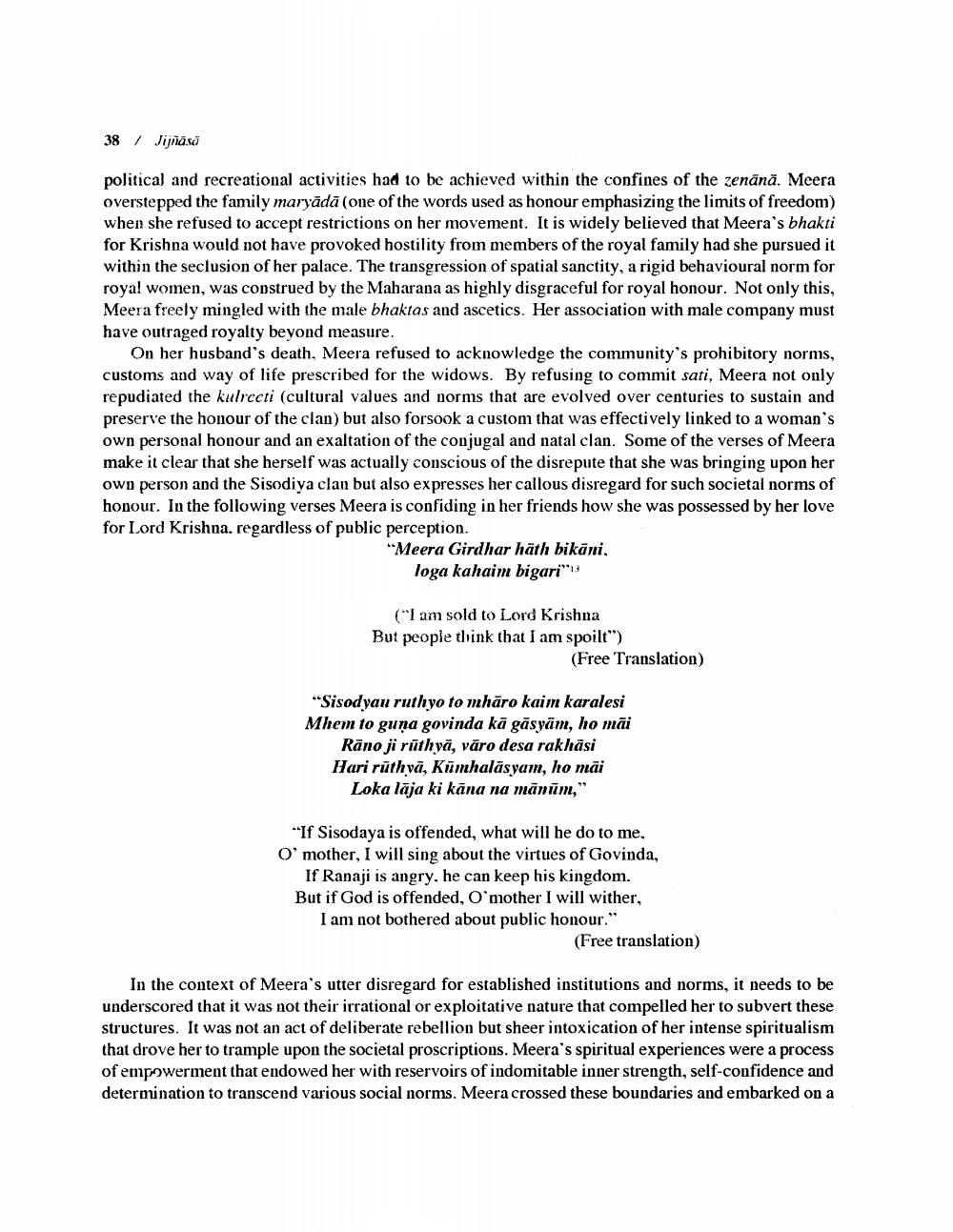________________
38/ Jijñāsā
political and recreational activities had to be achieved within the confines of the zenānā. Meera overstepped the family maryādā (one of the words used as honour emphasizing the limits of freedom) when she refused to accept restrictions on her movement. It is widely believed that Meera's bhakti for Krishna would not have provoked hostility from members of the royal family had she pursued it within the seclusion of her palace. The transgression of spatial sanctity, a rigid behavioural norm for royal women, was construed by the Maharana as highly disgraceful for royal honour. Not only this, Meera freely mingled with the male bhaktas and ascetics. Her association with male company must have outraged royalty beyond measure.
On her husband's death. Meera refused to acknowledge the community's prohibitory norms, customs and way of life prescribed for the widows. By refusing to commit sati, Meera not only repudiated the kulrecti (cultural values and norms that are evolved over centuries to sustain and preserve the honour of the clan) but also forsook a custom that was effectively linked to a woman's own personal honour and an exaltation of the conjugal and natal clan. Some of the verses of Meera make it clear that she herself was actually conscious of the disrepute that she was bringing upon her own person and the Sisodiya clan but also expresses her callous disregard for such societal norms of honour. In the following verses Meera is confiding in her friends how she was possessed by her love for Lord Krishna. regardless of public perception.
"Meera Girdhar hāth bikāni. loga kahaim bigari"
("I am sold to Lord Krishna But people think that I am spoilt") (Free Translation)
"Sisodyau ruthyo to mhāro kaim karalesi Mhem to guna govinda kā gäsyäm, ho mai Rāno ji rüthyā, vāro desa rakhāsi Hari rüthyä, Kümhaläsyam, ho mai Loka lāja ki kāna na mānām,”
"If Sisodaya is offended, what will he do to me, O' mother, I will sing about the virtues of Govinda, If Ranaji is angry, he can keep his kingdom. But if God is offended, O'mother I will wither, I am not bothered about public honour." (Free translation)
In the context of Meera's utter disregard for established institutions and norms, it needs to be underscored that it was not their irrational or exploitative nature that compelled her to subvert these structures. It was not an act of deliberate rebellion but sheer intoxication of her intense spiritualism that drove her to trample upon the societal proscriptions. Meera's spiritual experiences were a process of empowerment that endowed her with reservoirs of indomitable inner strength, self-confidence and determination to transcend various social norms. Meera crossed these boundaries and embarked on a




